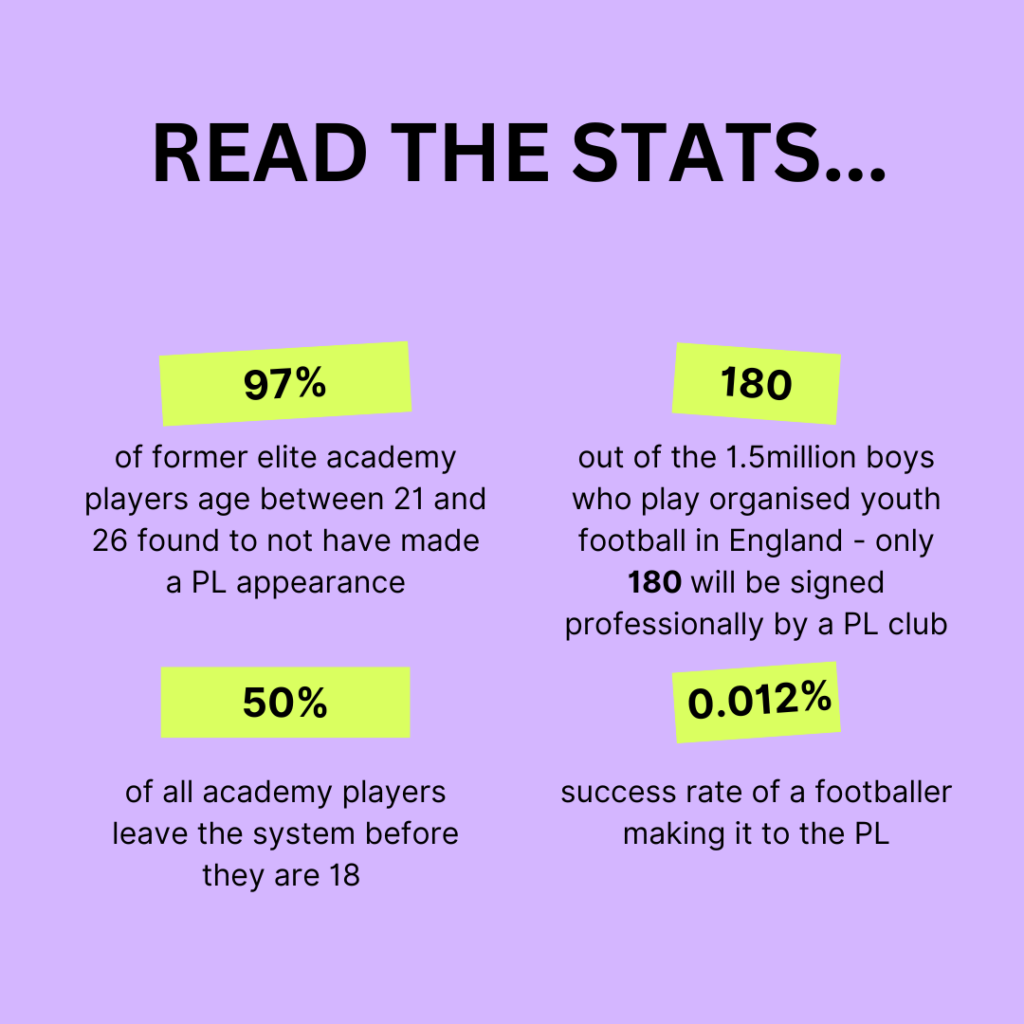Semi-pro player speaks on his exit from Bradford City as a kid and its repercussions
When you begin to notice your child seems drastically better than the other kids he is playing against on a Sunday morning, there becomes glimpses of hope that this may take him somewhere.
But on how many Sunday mornings in all the playing fields in the country does this glimpse of hope strike a parent watching from the sideline?
And when these glimpses of hope become apparent, the kid quickly faces a transition of playing with a ball for his own enjoyment, to playing with a ball to chase this enchanting, one in a million lifestyle.

That really is the point though. The damning statistics are not so distant from the turn of phrase. Out of the 1.5 million boys who play organised youth football in England, only 180 will be signed professionally by a Premier League club.
The scarier figure is that of 50% of all academy players leave the system before they are 18.
In the midst of fighting for a place in the starting eleven these other boys who are standing in between you and your dream inevitably become your friends. This is a large contributor to what heightens the blow when bowing out of the academy and watching your best friend take the spot that you had envisioned as yours.
On the 24 October 2020, when 18 year old Jeremy Wisten took his own life, it became necessary to question how damaging this system can be to young men’s mental health.

The knee injury that struck Wisten in January 2018 whilst playing for City’s academy kept him sidelined for five months and it wasn’t long after that Wisten was informed of the heartbreaking decision that he wouldn’t be receiving his scholarship with the club, like his friends such as Cole Palmer and Tommy Doyle had.
Academy director Jason Wilcox assured Wisten’s knee injury had nothing to do with his release from the club and after his departure, the club provided the family with videos of Jeremy playing to help him find his next step. Wilcox also mentions how mental health screenings took place by psychologists at City and there were no concerns about Jeremy’s well-being.
In the light of Wisten’s death, City’s academy director suggested that the club were to do more and introduced player exit surveys and created a ‘parent portal’, to maintain communication even after players had concluded their time in the academy.
Semi professional side Garforth Town’s youngster Dexter Ball can relate to the heartbreak felt when being released from a youth set-up. Ball described his exit from Bradford City, “I remember that meeting where they said I wouldn’t be getting a contract and I couldn’t even say anything because I felt like I was just going to burst into tears. When I did leave the room and got into the car with my dad, I didn’t stop crying.”

Despite now enjoying his football in the Premier Division of the Northern Counties East League, Ball mentions how “no longer being known as the lad who plays for a professional club can be a pretty difficult change to accept, especially in your school years.”
Just like so many who are told they have the world at their feet, the sudden destruction of the child’s dream that often lies around the corner can be such a startling one.
Ball describes how he was acknowledged as one of the best players in his age group, and even spending a full season in the age group above. “In my final year they made me captain and had some really good chats with me about my development.”
“But as season went on I got the idea they didn’t rate me as much as they made out. They brought in a new centre half who was getting a lot more attention than me, and some of the coaches began to become frosty with me in training.”
As Ball admits he didn’t quite push for a second chance the way many often do after a release, he suggests it is a “big regret” of his. But Ball’s decision may have been a vital one in stopping any more damaging developments from the tears in the car, the unease on the school playground and the overall “confidence knock”.
Perhaps it is this that also allowed Ball to acknowledge some real high points he experienced in the academy. He speaks highly of the facilities, how visible the progression in his game was becoming, and the principles set around the club. He describes it as a “strict environment” but doesn’t diminish how valuable the standards of the correct attire, shaking every coaches hand and always conducting yourself properly were.
Whilst the academies can become a field for future anxieties, crushes of confidence and hurt, as horrifically emanated by someone like Jeremy Wisten, the football dream is still one that does materialise for some and it becomes almost a gamble when throwing your child into these settings.
You have to be in it to win it, but for those who don’t win it, perhaps the academies need to extend their already evolving mechanisms that are halting any damaging repercussions that may follow a young man’s release.
